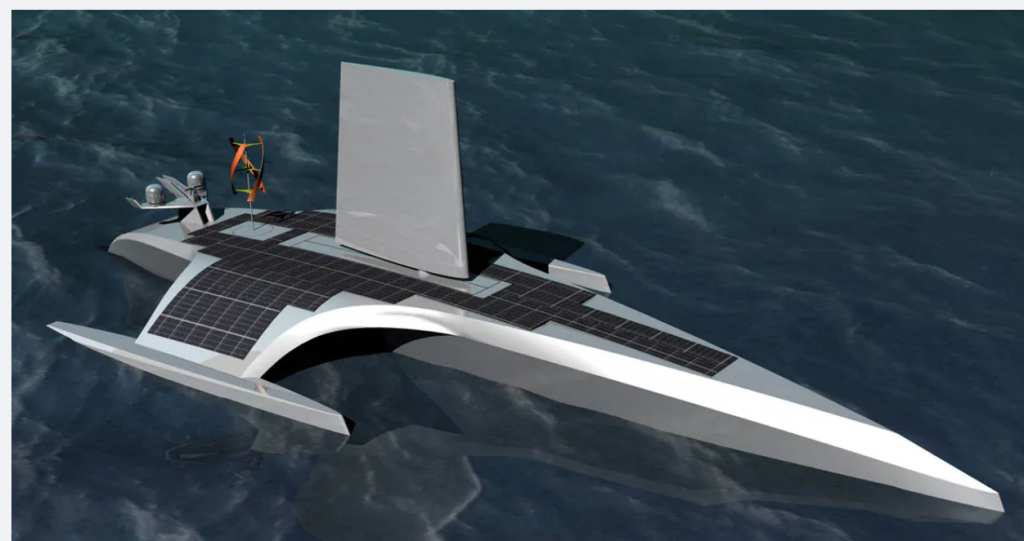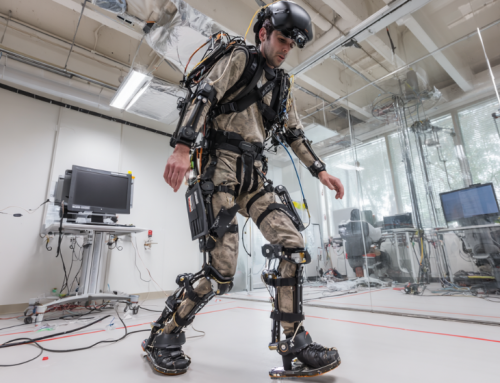
The IBM-designed Mayflower autonomous ship will be launching soon.
IBM Creates a new ‘Mayflower’ AI-Powered Autonomous Ship to Research the Oceans
IBM’s crewless AI-powered ship is due to begin roaming the oceans this month, collecting vital data about something we still know incredibly little about. Yes, it is crewless, and it is controlled by AI. The article by Ryan Daws was found on artificalintelligence-new.com and it gives you a clear picture of what might be the next big thing in cross-ocean shipping. The boat is called the Mayflower Autonomous.
Humans have traveled the sea in some form for tens of thousands of years—with the earliest crossings occurring around 53,000 to 65,000 years ago (when Australo-Melanesian populations migrated into the Sahul landmass – known today as Australia and New Guinea – from what used to be the Sundaland peninsula.)
It’s often said how we know more about the moon than our oceans, with around 95 percent still unexplored. Arguably, the last major ocean research expedition was between 1872 and 1876 when a converted Royal Navy gunship known as the Challenger traveled close to 70,000 nautical miles and cataloged over 4,000 previously unknown species.
Inspired by the Challenger’s story, IBM has teamed up with non-profit ProMare to make a similarly large impact on ocean research.
Brett Phaneuf, a Founding Board Member of ProMare and Co-Director of the Mayflower Autonomous Ship project, said:
“Putting a research ship to sea can cost tens of thousands of dollars or pounds a day and is limited by how much time people can spend onboard – a prohibitive factor for many of today’s marine scientific missions.
With this project, we are pioneering a cost-effective and flexible platform for gathering data that will help safeguard the health of the ocean and the industries it supports.”
Naturally, there are more than a few differences between the original ship and the Mayflower Autonomous Ship (MAS).
Mayflower 2.0 no longer relies solely on wind power and will use a wind/solar hybrid propulsion system with a backup diesel generator. The new ship also trades in a compass and nautical charts for navigation in favor of a state-of-the-art GNSS positioning system with SATCOM, RADAR, and LIDAR.
IBM’s deep learning technology is on-board to help the ship traverse the harsh and rapidly-changing environment of the ocean.
And all the bells and whistles—what one would expect from a project driven by IBM.
Catching the Next Wave
Andy Stanford-Clark, CTO of IBM UK & Ireland, added:
“IBM helped put man on the moon and is excited by the challenge of using advanced technologies to cross and research our deepest oceans.
By providing the brains for the Mayflower Autonomous Ship, we are pushing the boundaries of science and autonomous technologies to address critical environmental issues.”
MAS’s voyage could help reduce the great damage being done to the health of earth’s oceans. A UN report found oceans are warmer, more polluted, depleted and more acidic than ever.
Rising sea levels are among the key concerns about the impact on humans, but another is the increasing number of plastics in the sea which is harming sea life and contaminating food. So this project could produce such changes in how we treat our oceans. And it could not come at a more opportune time.
read more at artificialintelligence-news.com







Leave A Comment